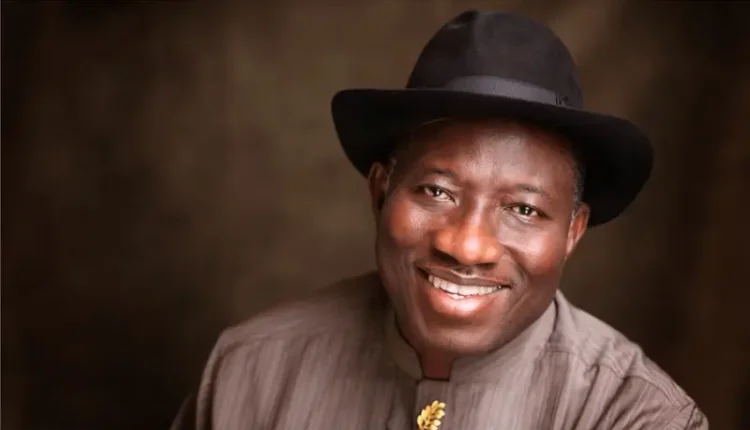A recent suit filed before the Federal High Court in Abuja seeks to bar former President Goodluck Ebele Jonathan from contesting the 2027 presidential election. The case, instituted by a lawyer, Mr. Johnmary Chukwukasi Jideobi, asks the court to declare Jonathan ineligible to run for the office of President under Sections 1 and 137 of the 1999 Constitution (as amended). It further prays the court to issue a perpetual injunction restraining the Independent National Electoral Commission (INEC) from accepting or publishing Jonathan’s name as a presidential candidate.
At the heart of this case lies a fundamental question: Is former President Jonathan constitutionally barred from contesting for the presidency again? While the plaintiff insists that Jonathan has already served out his maximum term limit, a closer and honest reading of the Constitution and relevant precedents clearly shows that the suit is legally hollow, politically suspect, and inconsistent with the spirit of Nigeria’s constitutional democracy.
The Constitutional Context: Understanding Section 137(3)
To understand why this suit lacks merit, it is important to revisit Section 137(3) of the 1999 Constitution (Fourth Alteration, No. 16), which states: “A person who was sworn in to complete the term for which another person was elected as President shall not be elected to such office for more than a single term.”
This provision was inserted in 2018; three years after Jonathan left office, to clarify the constitutional ambiguity surrounding term limits for vice presidents or deputy governors who assume office mid-term following the death or incapacitation of their principals.
Now, let us place Jonathan’s case within this framework.
Dr. Goodluck Jonathan was sworn in as President in 2010 following the death of President Umaru Musa Yar’Adua, and subsequently contested and won a single term in 2011. He lost his re-election bid in 2015. The 2018 amendment which introduced Section 137(3) was not in existence during his tenure. Therefore, applying it retroactively to disqualify him from contesting would violate the well-established legal principle that laws do not operate retrospectively unless expressly stated.
There is nothing in Section 137(3) suggesting that the National Assembly intended it to have retrospective effect. The Constitution itself forbids retroactive interpretation in a manner that robs a citizen of vested rights.
The Doctrine of Non-Retroactivity
The Nigerian judiciary has consistently held that constitutional amendments or statutory provisions cannot apply to acts done before their enactment, unless the law expressly says so. In Afolabi v. Governor of Oyo State (1985), the Supreme Court emphasised that “a statute should not be construed to have retrospective operation unless the language of the statute expressly or by necessary implication requires such construction.”
Therefore, since the constitutional amendment came after Jonathan had already served his tenure, it cannot retroactively render him ineligible. To hold otherwise would mean subjecting a citizen to a new law for actions that predate its existence; a clear breach of both fairness and constitutionalism.
It is also important to note that Jonathan’s tenure from 2010 to 2011 was not an elected term; it was a completion of Yar’Adua’s tenure. His only elected tenure was from 2011 to 2015. Therefore, even within the logic of Section 137(3), Jonathan cannot be said to have served “two terms” as an elected president. He was only elected once.
Democracy and the Right to Participate
Beyond the constitutional interpretation, this suit raises deeper questions about democracy and the right to political participation. The right to vote and be voted for is a fundamental aspect of citizenship guaranteed under Section 40 of the Constitution and Article 13 of the African Charter on Human and Peoples’ Rights.
By seeking to bar Jonathan, or any citizen for that matter, from participating in an election without a clear constitutional prohibition, the plaintiff’s action strikes at the heart of democratic freedom. The principle of popular sovereignty dictates that it is the electorate, not the courts, who should determine who leads them.
If Jonathan chooses to run in 2027, the Nigerian people reserve the ultimate right to either endorse or reject him at the polls. Judicial activism should not be misused as a political tool to exclude potential contenders through the back door of litigation.
The Political Undertone
It is hard to ignore the political undertone of this lawsuit. Jonathan remains a figure of historical significance and political symbolism in Nigeria. Efforts to preemptively disqualify him from contesting could be interpreted as politically motivated attempts to silence or constrain certain political options ahead of 2027.
The court must guard against being used as a pawn in political chess games. The sanctity of the judiciary depends on its ability to interpret the law dispassionately, free from the whims of political expediency.
The suit filed against Dr. Goodluck Jonathan’s eligibility to contest the 2027 presidential election is a legal misadventure built on a misreading of the Constitution. Section 137(3) was never designed to operate retroactively, and applying it to Jonathan’s case would violate basic constitutional and legal principles.
Democracy thrives on choice. Whether or not Jonathan decides to contest should be a matter for the Nigerian people, not for courts to preemptively decide through speculative litigation. The judiciary must resist the temptation to become an instrument of political exclusion.
At the end of the day, the Constitution remains the supreme law of the land — not the personal interpretation of ambitious litigants. And under that Constitution, there is no valid legal barrier preventing former President Goodluck Ebele Jonathan from offering himself to serve Nigeria again in 2027 if he so wishes.


